Appreciation: USC alumni game ironman Jay Jaffe embodied the spirit of legendary coach Rod Dedeaux
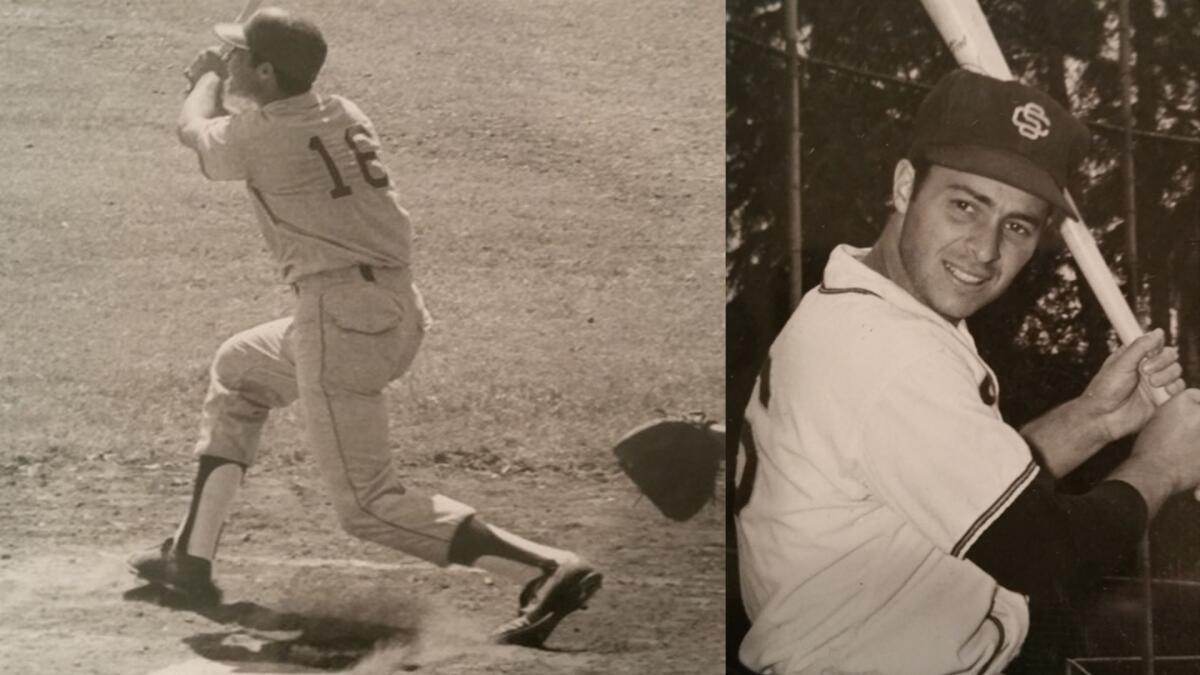
- Share via
Jay Jaffe was the consummate leadoff hitter at USC. He’d get deep into counts so his teammates could get a look at what the pitcher was throwing. He’d put the ball in play with two strikes. He was a stolen-base threat. Most of all, he was a tough out.
Yet Jaffe was called upon second throughout his nearly 50-year career as a criminal defense attorney. Prosecutors gave opening and closing arguments first, and Jaffe would follow, explaining why his client was innocent, or at the very least deserving of reasonable doubt.
Maybe that’s why it meant so much to Jaffe to bat leadoff every year at the Trojans alumni game, never missing one from 1970 to 2018. He’d arrive at Dedeaux Field hours early, take a reverent stroll through the Hall of Fame room above the clubhouse and soak in the scene before proudly slipping on his jersey.
Then he’d step into the left-handed batter’s box to open the game. Even well into his 60s and fending off devastating illnesses, Jaffe could foul off pitches and poke a line drive against a current Trojan throwing 90 mph. Six times during his 20s and 30s, the 5-foot-9, 170-pound Jaffe homered during alumni games.
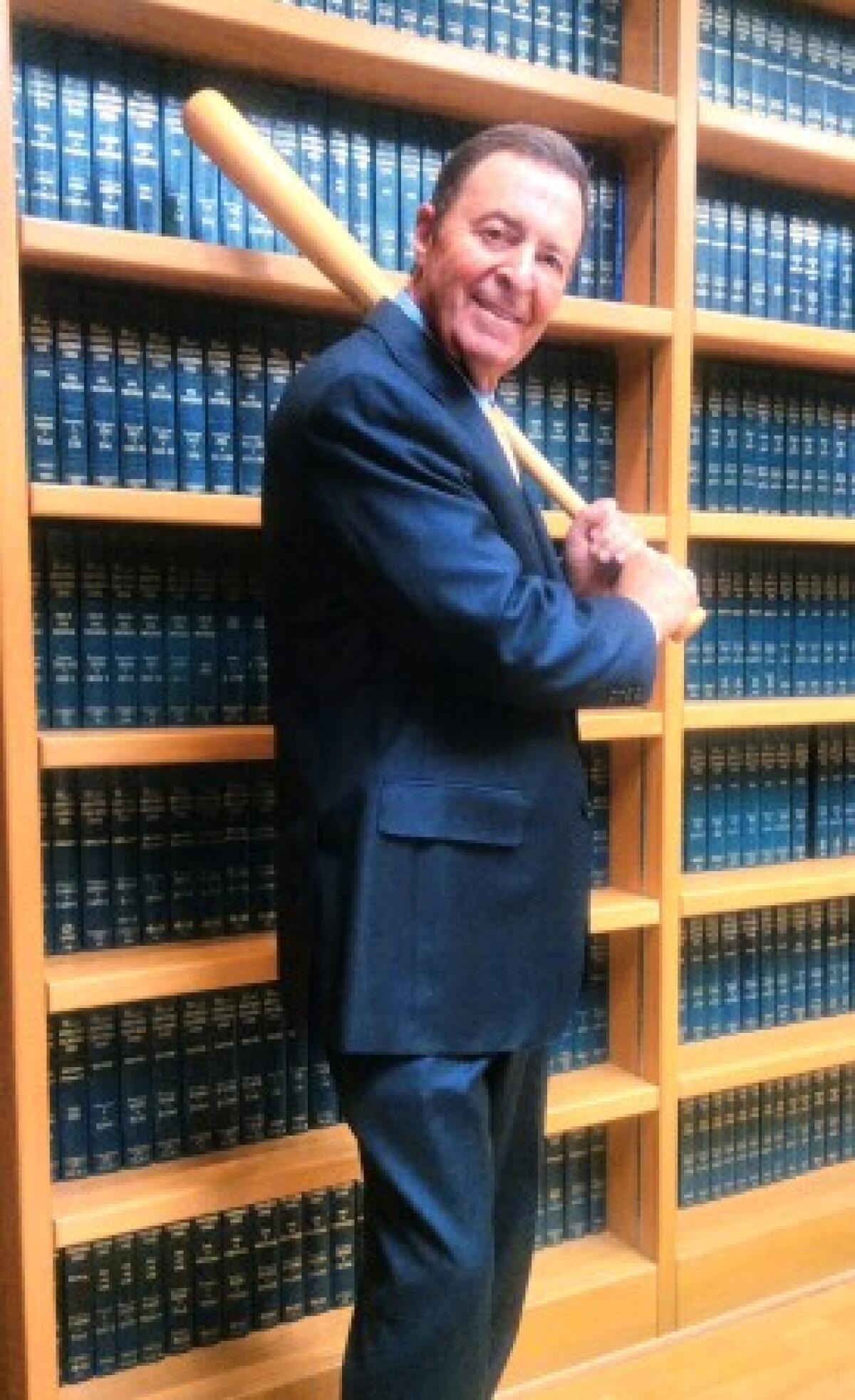
Numbers of greater significance came later. Three times Jaffe was diagnosed with lymphoma beginning in 1998, and three times he beat it into remission. Parkinson’s disease struck in 2009, and he continued to work and to suit up for the alumni game every year one was held until he died Jan. 3, 2022, at 74. A tough out, indeed.
Jaffe was quick with a quip and met adversity with unflinching optimism. He brought those qualities with him to USC as a walk-on from Fairfax High in 1965 and became the starting center fielder by his junior year. And they were cemented by legendary Trojans coach Rod Dedeaux, Jaffe becoming an embodiment of his teachings and incomparable winning touch.
How is someone best remembered? Yes, Jaffe was an unlikely hero of the 1968 College World Series, making a spectacular game-saving catch in center field to vault USC into the championship game. But his impact throughout life was profound to those who knew him well, and they invariably choke back tears when talking about him.
Jaffe often said he didn’t have acquaintances, only best friends, and he collected them like base hits throughout his life.
As for Jaffe’s USC uniform, he’s wearing it still. Although Denise Jaffe, his wife of 51 years, didn’t tell anyone, he was buried in Cardinal and Gold, with No. 16 on his back.
She drew the line, however, at burying him under the batter’s box at Dedeaux Field, even though he’d joked that was where he wanted to be laid to rest, saying: “The plaque can read: ‘Jay Jaffe, born August 24, 1947, died 0 for 4.’”
::
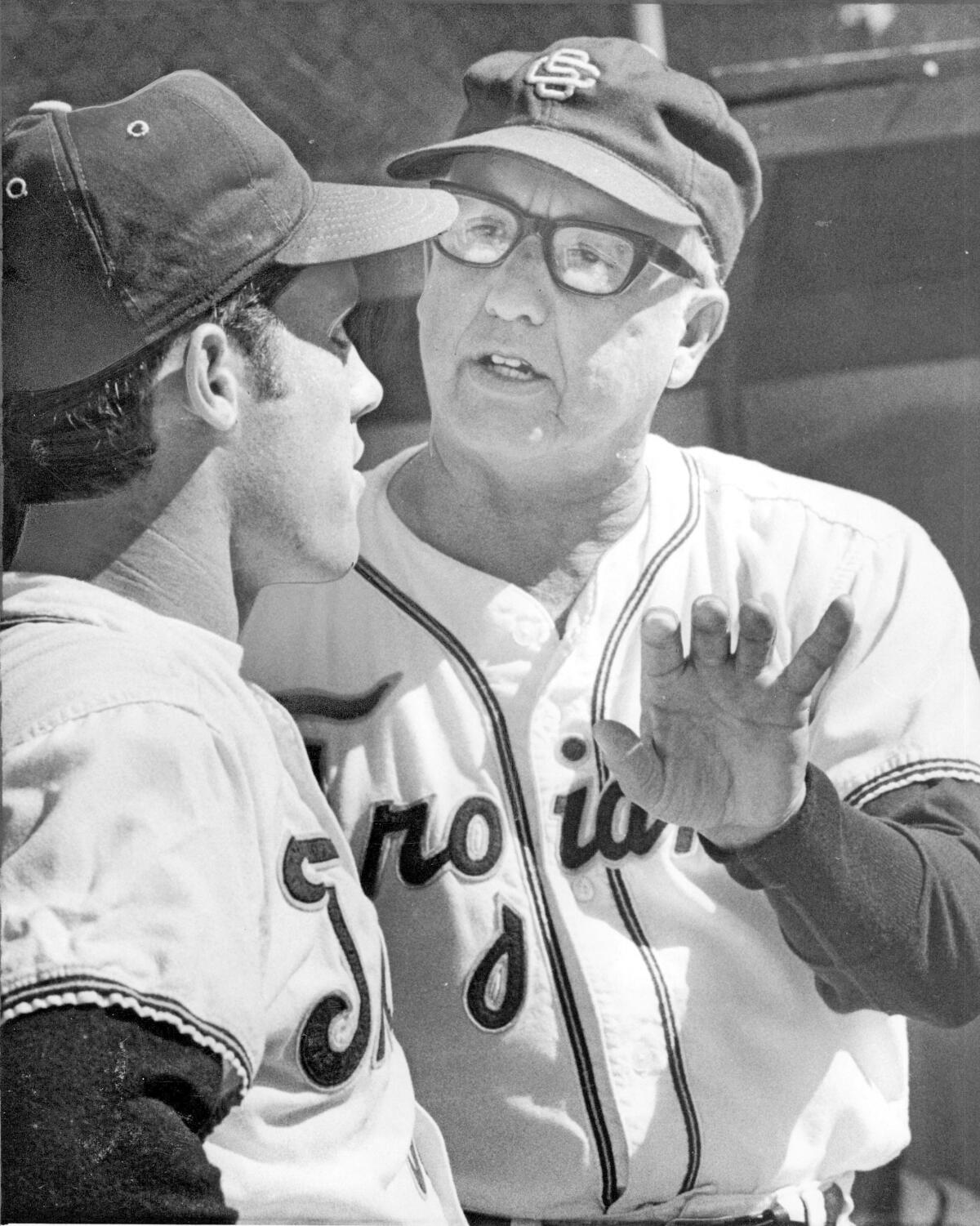
Insightful sayings were a Dedeaux specialty during his 45-year stint as USC coach that included a record 11 College World Series championships. One particularly resonated with Jaffe, and he repeated it at key junctures in his life.
If a game was played in frigid weather, if a field was pocked with potholes, if an umpire’s strike zone went haywire, Dedeaux would respond with the same words: It’s just the way we like it.
Any adversity gave USC an advantage, Dedeaux reasoned, because while the opposing team was complaining, the Trojans were stating for the record that it was just the way they liked it.
Jaffe trotted out the phrase throughout his life, and it became especially applicable when he was first diagnosed with non-Hodgkin’s lymphoma and began chemotherapy.
His voluminous list of friends reached out, from Jim Tunney, his principal at Fairfax High and legendary NFL referee; to Dan Bane, a USC teammate who became chief executive of Trader Joe’s; to Lewis Leader, a childhood pal and lifelong journalist; to George Grande, a fellow Trojans walk-on who became one of the first anchors at ESPN, a broadcaster for the Cincinnati Reds and the master of ceremonies at 31 Hall of Fame induction ceremonies in Cooperstown, N.Y.
“You knew he was pushing himself to be as strong as he could,” Grande said. “He was the one suffering, but there was always a warmth, a feeling of calmness when I spoke to him. He inspired that in everyone he was around.”
Jaffe employed the phrase in less dire times as well, wrote former USC player Bob Leach in his book about Dedeaux titled “Never Make the Same Mistake Once.” Jaffe took the bar exam in the early 1970s, and a man seated next to him coughed and sneezed incessantly. When the exam was completed, the man turned to Jaffe and others seated around him and apologized for being ill and disrupting everyone’s concentration.
Jaffe didn’t miss a beat. “No worries,” he replied, “It’s just the way we like it.”
::
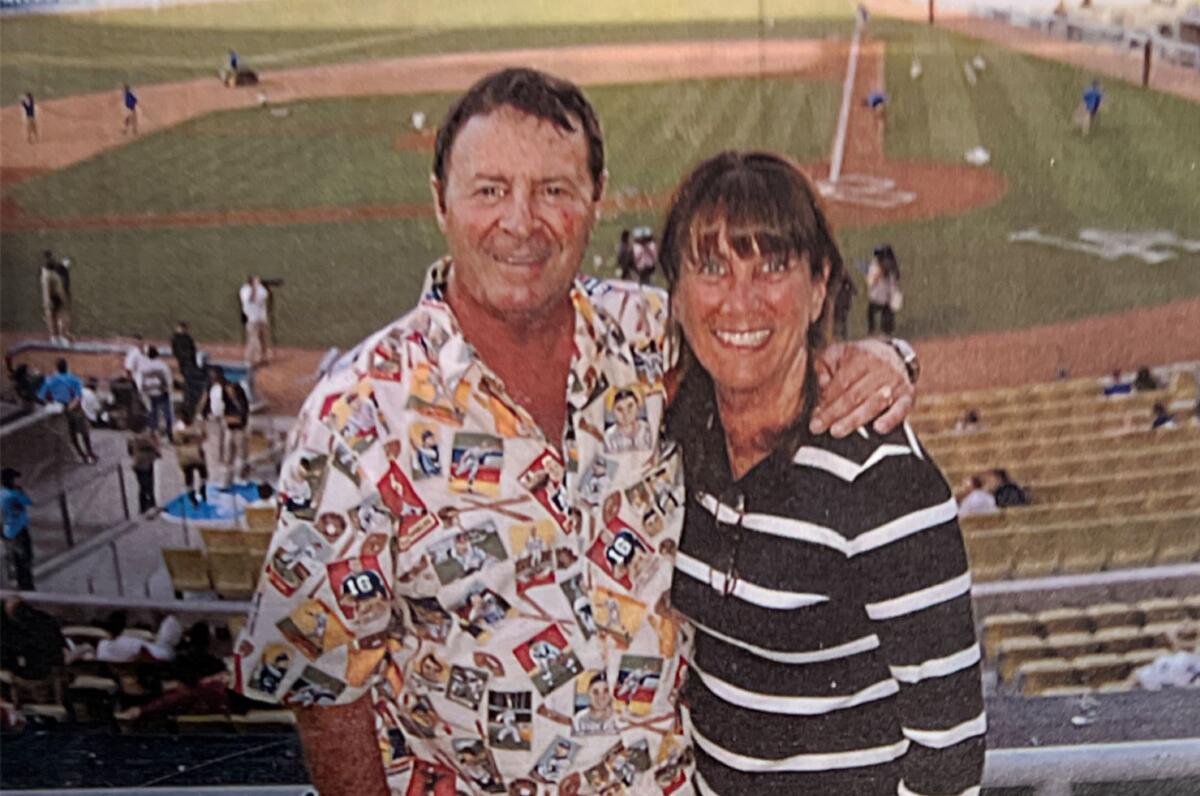
Jaffe grew up in Baldwin Hills and learned to play baseball at the Westside Jewish Community Center on Olympic Boulevard. He was the best player from Day 1. When tryouts rolled around at John Burroughs Junior High, a boy named Mike Levinson was taken aback when he jogged out to shortstop because nobody else did.
“Guys said that’s Jay Jaffe’s position,” Levinson said. “He wasn’t there. He didn’t have to try out. I asked the coach why I couldn’t play shortstop. He said Jay Jaffe is the best athlete in the school and where he wants to play, he plays.”
Levinson moved over to second base, and, although he didn’t play baseball beyond high school, he soon became another of Jaffe’s best friends for life.
“I always wondered what it must be like to be him,” Levinson said.
The last time they saw each other, Jaffe was in the hospital close to death. Levinson had enjoyed Jaffe’s jokes for so long he decided he’d reciprocate with a story that drew a laugh from his ailing friend. He told Jaffe he’d taken his grandchildren to Disneyland and heard a cast member say that he’d just made the baseball team at Long Beach State.
“I turned and told him I was a Trojan, that I was on the 1968 team that won the College World Series,” Levinson said. “I reached out, shook his hand and said, ‘Hi, my name is Jay Jaffe.’ ”
Jaffe met Denise in junior high as well. They dated until he graduated from USC and then married in 1970 when Denise turned 20, eventually having a daughter, Kasey, and son, Michael.
“I was crazy about him from the day I met him,” Denise said. “I had a brain tumor when I was 17, and he was so loving, so positive and kind with me.”
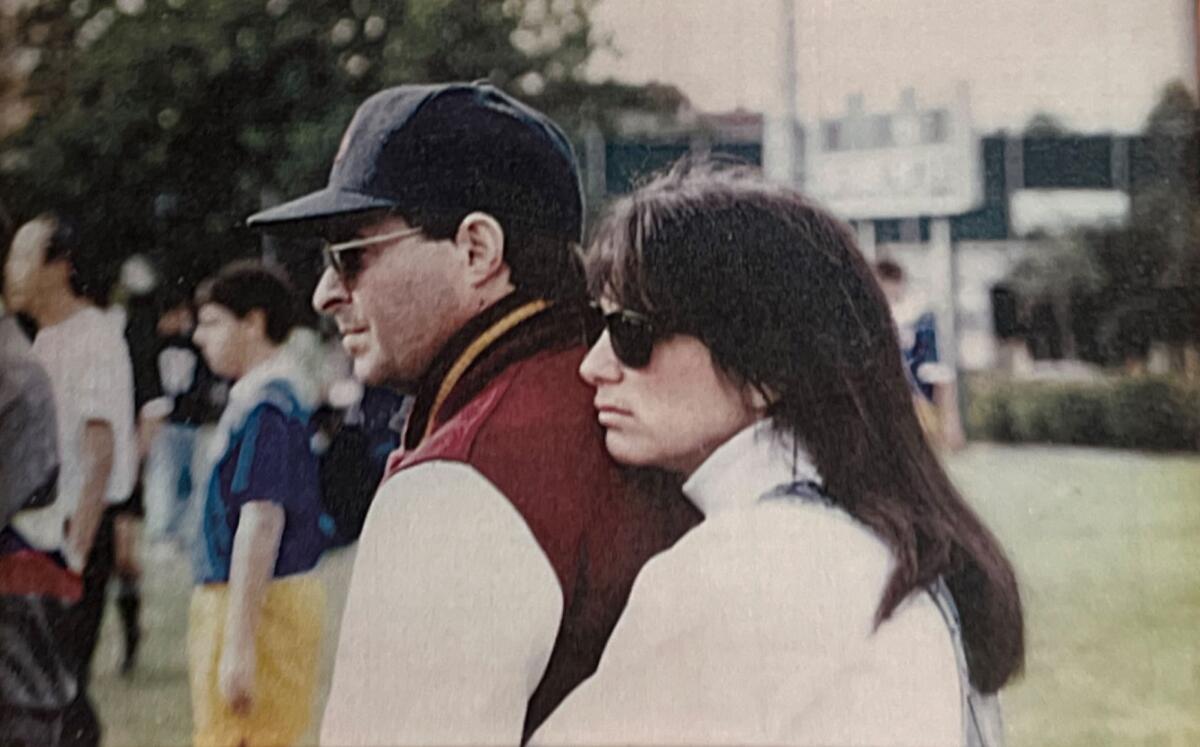
Jaffe attended Fairfax High, where everyone marveled that Tunney was at his desk by 7:30 every Monday morning even though the previous day he’d served as the referee at an NFL game somewhere across the country.
Tunney, 93, remembers Jaffe well. His daughter has Parkinson’s disease, and he tapped into his former student for inspiration and encouragement.
“We knew Jay would do something great, that much was obvious,” Tunney said. “But how he fought through [lymphoma] and Parkinson’s is a tremendous credit to his character.”
And sense of humor. Jaffe was diagnosed with lymphoma in 1998, 2002 and 2004, then with Parkinson’s in 2009, yet he liked to say the most devastating news he ever received came Jan. 27, 2001.
“That was the day the alumni game was rained out.”
::
USC led North Carolina State 1-0 late in the 1968 College World Series semifinals. With two out and a runner on base, Clem Huffman drove a ball to deep right-center field off USC’s Bob Vaughn. Jaffe, a right-handed fielder, got a great jump.
“As soon as he hit it, I cursed because I didn’t think anybody was going to get to it,” Vaughn said. “I turn and see Jay running full tilt, and he makes a running shoestring catch in the gap.”
The Trojans won 2-0 behind Vaughn’s complete game, then defeated Southern Illinois 4-3 for the title when Pat Kuehner hit a two-out, two-strike, two-run triple in the bottom of the ninth, launching USC to an unprecedented string of seven College World Series championships in 11 years.
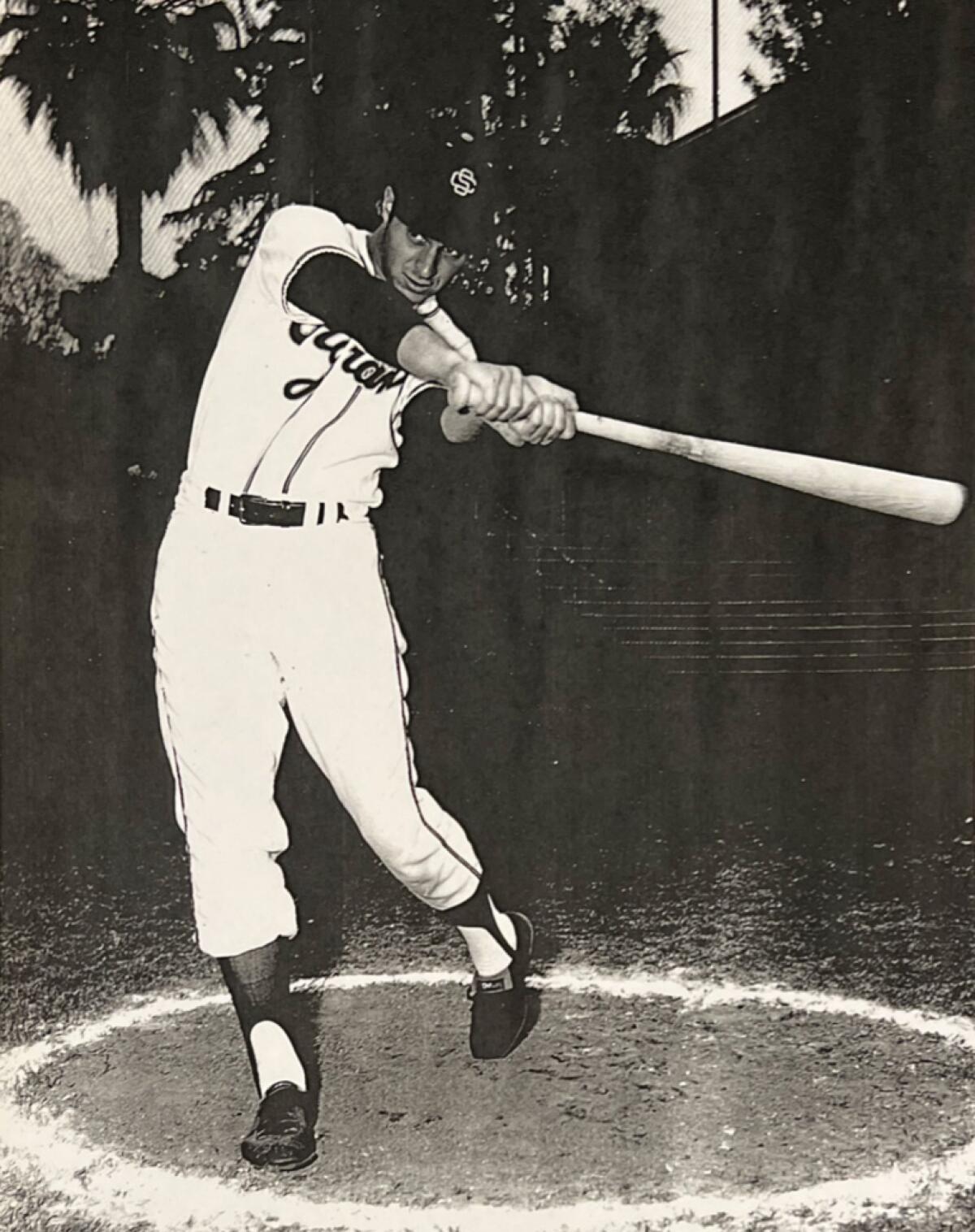
The N.C. State student newspaper looked back at the game in 2007 — at the time it was the Wolfpack’s only College World Series appearance in 101 years of playing baseball — and Jaffe read it online. He did some digging, discovered Huffman owned a print shop in Charlotte and emailed him, saying he was the unnamed USC center fielder in the article who robbed Huffman of a certain triple. Huffman responded and the two men reminisced, nearly 40 years after the game.
Wouldn’t you know it, Jaffe had made another best friend.
Vaughn joined the email thread, telling Huffman he was the guy who threw the pitch. A friendly banter ensued, and the men continued to correspond for years. When Jaffe was honored with the inaugural Spirit of Troy Award in 2016, Huffman flew to L.A. for the banquet and stood and spoke. Jaffe didn’t know he was coming.
“For 39 years I hated Jay Jaffe, but I’ve come to know him personally and we’ve developed a great friendship from afar,” Huffman told the crowd.
Huffman wasn’t the only adversary charmed by Jaffe. As a criminal defense lawyer, Jaffe argued numerous cases in front of Santa Monica Superior Court judge Richard Neidorf.
“Jay was liked by all, and for a lawyer that’s really something,” Neidorf said. “To do a good job and remain professional and cordial, not many can do that. He also loved unusual cases, loved to research the law and history of the law.”
Jaffe was counsel in several high-profile cases, including representing defendant Stewart Woodman in the infamous 1985 Ninja murders in which Woodman and his brother Neil were accused of killing their parents outside a Brentwood condominium.
The first persuasive argument Neidorf heard from Jaffe came much earlier. They were students at Southwestern Law School who hadn’t met when the class was asked to critique a recent state Supreme Court ruling.
“The professor read all the critiques and said two were outstanding, mine and Jaffe’s, and had us read ours aloud,” Neidorf said. “As we are walking out the door, Jay puts his arm around me and says, ‘How does it feel to have the second-best paper in the class?’ We were great friends from that day on.”
::
Jaffe and Hall of Fame pitcher and Trojans alum Randy Johnson in 2016 were honored by USC, Johnson receiving a lifetime achievement award. Jaffe was the recipient of the Spirit of Troy Award, and the following year it was renamed the Jay Jaffe Spirit of Troy Award. Johnson’s heartfelt acceptance speech at the banquet lasted seven minutes. Jaffe’s, rife with one-liners and anecdotes that had the crowd of about 400 of his limitless best friends roaring, lasted 26 minutes.
Four times he apologized for speaking so long, and four times he kept going despite his body showing the signs of seven years of battling Parkinson’s. That year, Jaffe at age 68 played in his 46th consecutive alumni game, working an eight-pitch walk and lining out to second, forever that tough out. He’d appear in two more before his disease-ravaged body couldn’t bear it.
“There were years he could barely muster the strength, and he’d rally, put on the uni and show up,” said Grande, whose locker was next to Jaffe’s for four years at USC. “Jay was getting those four at-bats for all of us who played with, before and after him. He knew how much that meant to us, how much the experience of playing for Rod meant to us.
“By playing in those alumni games, Jay was telling us that he was in our corner for life.”
Jaffe’s funeral was a celebration of his myriad friendships. One after another, those best friends stood and told stories that elicited laughter and knowing looks.
“Jay’s was one of the few funerals I’ve been to where people who talked about him were telling the truth,” Neidorf said. “Instead of almost gagging on their words, spewing a pack of lies, everything they said about him was true. It was refreshing.”
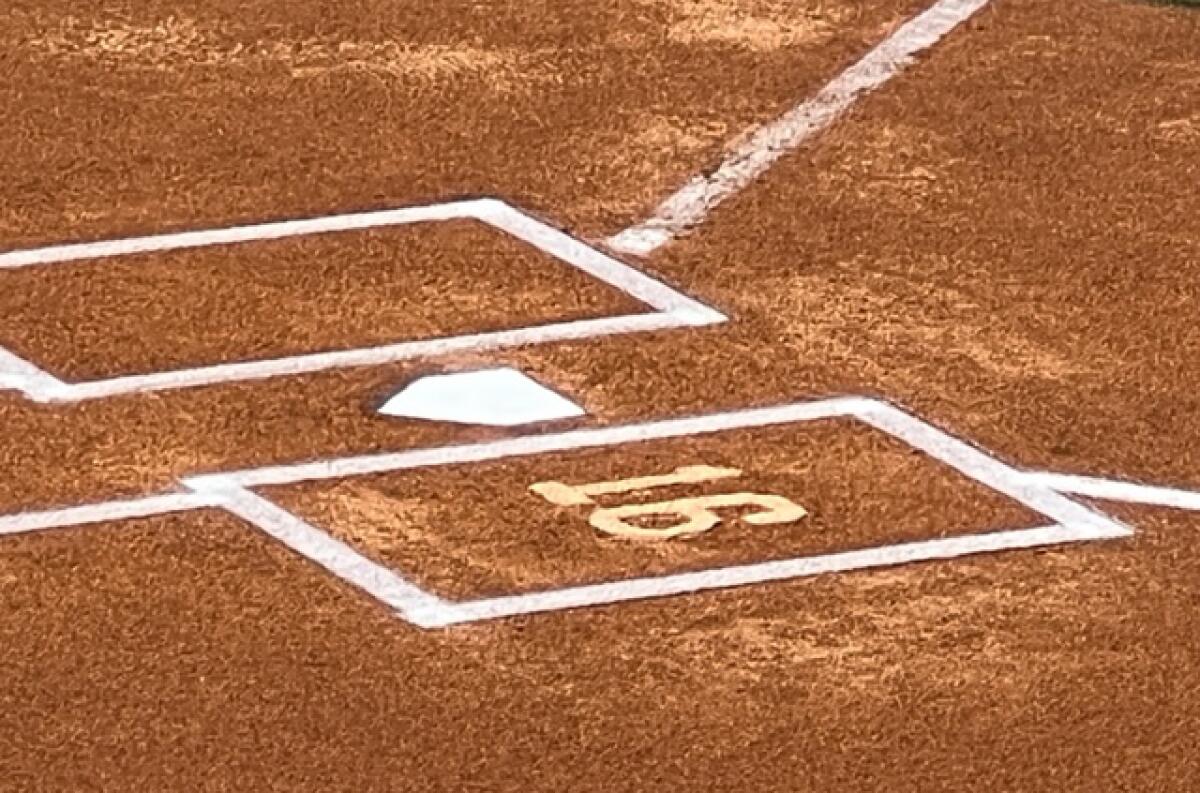
At the USC alumni game a few weeks ago, Jaffe’s No. 16 was chalked into the left-handed batter’s box and he was honored with a moment of silence. His lifelong friend Shelly Andrens, who preceded him as the USC center fielder before playing several years in the minor leagues, recounted who Jaffe was and what he meant to USC.
Andrens has his own favorite Jaffe story, and it resonates even without Jaffe’s trademark humor. Jaffe was in a Rancho Mirage care facility a few months before he passed when he called Andrens and asked him to visit.
“Mickey Mantle was my absolute favorite baseball player, and Jay knew that,” Andrens said. “I drove to where he was, and he gave me a baseball signed by Mantle. I have no idea how he acquired it, but it remains the finest gift I’ve ever received.
“He thought about making me feel good while he was suffering. That was Jay Jaffe.”
More to Read
Go beyond the scoreboard
Get the latest on L.A.'s teams in the daily Sports Report newsletter.
You may occasionally receive promotional content from the Los Angeles Times.







